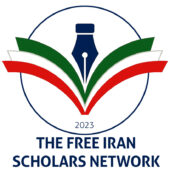Press Release
Free Iran Scholars Network (FISN)
September 1st, 2025
Contact: Info@FreeIranSN.com
The Free Iran Scholars Network (FISN) strongly rejects the attempt to present Reza Pahlavi as a credible alternative to the Iranian regime during his scheduled remarks at the University of Southern California (USC) Casden Institute on September 16, 2025.
It does not reflect the lived reality of Iranians inside the country.
A Legacy of Failures
For over four decades in exile, Pahlavi has projected himself as a political figure. Yet he has consistently failed to build an organization, articulate a coherent program, or earn the trust of the Iranian people. All of them collapsed due to incompetence, poor leadership, and financial opacity. His appearance at USC is another symbolic performance.
- Council of Iranian Solidarity (1990s): Collapsed due to poor structure.
- Foundation for the Children of Iran (1991): Marred by financial mismanagement and minimal impact.
- Iran National Council (2013): Described by the U.S. Congressional Research Service as “minimal.” Faded amid internal defections and structural weakness.
- Ofogh Iran International (2014): A short-lived media venture with no clear strategy.
- Phoenix Project of Iran (2019): A think-tank effort that quickly lost momentum.
- New Covenant (2020): A vague unity call with no follow-up.
- Alliance for Democracy and Freedom in Iran (2022–2023): Collapsed due to unilateralism and disputes.
- Georgetown Summit Front (2023): Disbanded after Pahlavi declared his role “above all others.”
- Strike Fund for Iranian Workers (2022–2025): Raised money but offered no accountability for where the funds went.
- “I Give Mandate” Campaign (2023): Unverifiable and later disavowed by its initiator.
- Iran Prosperity Project (2025): A publicity stunt with no traction inside Iran.
- National Collaboration Campaign (Hamkāri-ye Melli, 2025): Advertised as a “secure” platform for defections from the regime. It was condemned as a counterintelligence trap that lacked encryption, safeguards, and oversight.
- Multiple diaspora summits and appearances: Produced no continuity or institutions.
Each effort followed the same pattern. There were grand announcements. There was little infrastructure. There was no follow-through. Eventually there was quiet disappearance. As scholars we observe that his initiatives consistently generate headlines without results. They are symbolism without substance. FISN has documented this pattern extensively. Our report, Behind the Crown: A Documented Critique of Reza Pahlavi’s Political Role, provides detailed evidence of his failures, opportunism, and lack of legitimacy.
His Own Words: Dynastic Claims and IRGC Outreach
Pahlavi has revealed his worldview in his own words:
“I am the heir to a dynasty. I have responsibilities that come with that name.”
“Step down, Khamenei… I am ready to take over.”
“Under no circumstances am I willing to sacrifice my own freedom in the fight for the people’s freedom.”
“I have bilateral contacts with the Army, the IRGC and the Basij, and we communicate.”
“The IRGC could have a role even after this regime ends. Not all of them are terrorists. Some have fought for Iran.”
Perhaps his most reckless act came in 2025. He launched a so-called “secure communication channel” and called on members of the IRGC and Basij to contact him directly. He invited regime enforcers to coordinate defections with him. This was not democratic courage. It was reckless opportunism that legitimized the very forces responsible for killing thousands of Iranians.
Authoritarian Inner Circle
Pahlavi’s inner circle today is not composed of democratic reformers. It includes notorious SAVAK veterans such as Parviz Sabeti, who was responsible for torture and repression under the Shah. Sabeti has been a key advisor for Reza Pahlavi in the last four decades. It also includes individuals who until recently were active players within the Islamic Republic’s apparatus. This is not democratic leadership. It is the recycling of authoritarian elites from both the Shah’s monarchy and the current clerical system.
Silence on Crimes, Life on Stolen Wealth
Pahlavi has never condemned the crimes of his father’s dictatorship. The Shah’s regime presided over a brutal security apparatus, SAVAK, that was infamous for torture, political repression, and executions of dissidents. Many in the Western audience may not recall the scale of this repression or the poverty that existed in Iran during that period. According to World Bank data, In Iran (one of the richest countries in the world), in 1975 nearly 40 percent of Iranians lived at or below the poverty line, even as the Shah and his family accumulated immense personal wealth.
At the time of the 1979 revolution, the Shah’s fortune was estimated at more than one billion dollars. It included holdings in banks, real estate, industry, and natural resources. These riches were looted from the Iranian people. They continue to sustain the Pahlavi family’s lavish lifestyle today. Reza Pahlavi’s refusal to acknowledge this legacy or to condemn it further undermines his credibility.
A Blueprint for Authoritarianism
FISN’s research report, Reza Pahlavi’s Platform – A Roadmap to Neo-Fascist Rule, shows that his so-called transition plan does not represent democracy. It consolidates unchecked authority in a paternal figure. It replicates authoritarian structures instead of offering democratic alternatives.
Iranians Have Already Said “No”
Since 2018, nationwide uprisings have carried the chant: “Down with the dictators, be it the Shah or the Ayatollah.” Pahlavi has not built resistance networks. He has not supported strikes. He has not created civil institutions inside Iran. Even internationally his credibility is fading. His invitation to the 2025 Munich Security Conference was withdrawn.
Open Political Discourse
While we welcome academic freedom and open discussion about Iran’s future, it is vital to distinguish authentic democratic alternatives from false ones. Reza Pahlavi’s USC appearance is not the voice of Iran’s future. It is a continuation of his 45-year record of failed initiatives, incompetence, financial opacity, authoritarian advisors, silence on past crimes, and opportunism disguised as leadership.
The Iranian people deserve better. The world must not ignore the democratic aspirations of a nation that has made its choice clear: no to the Shah, no to the Ayatollah, yes to a free, secular, democratic republic.
Free Iran Scholars Network (FISN)
September 1st, 2025
